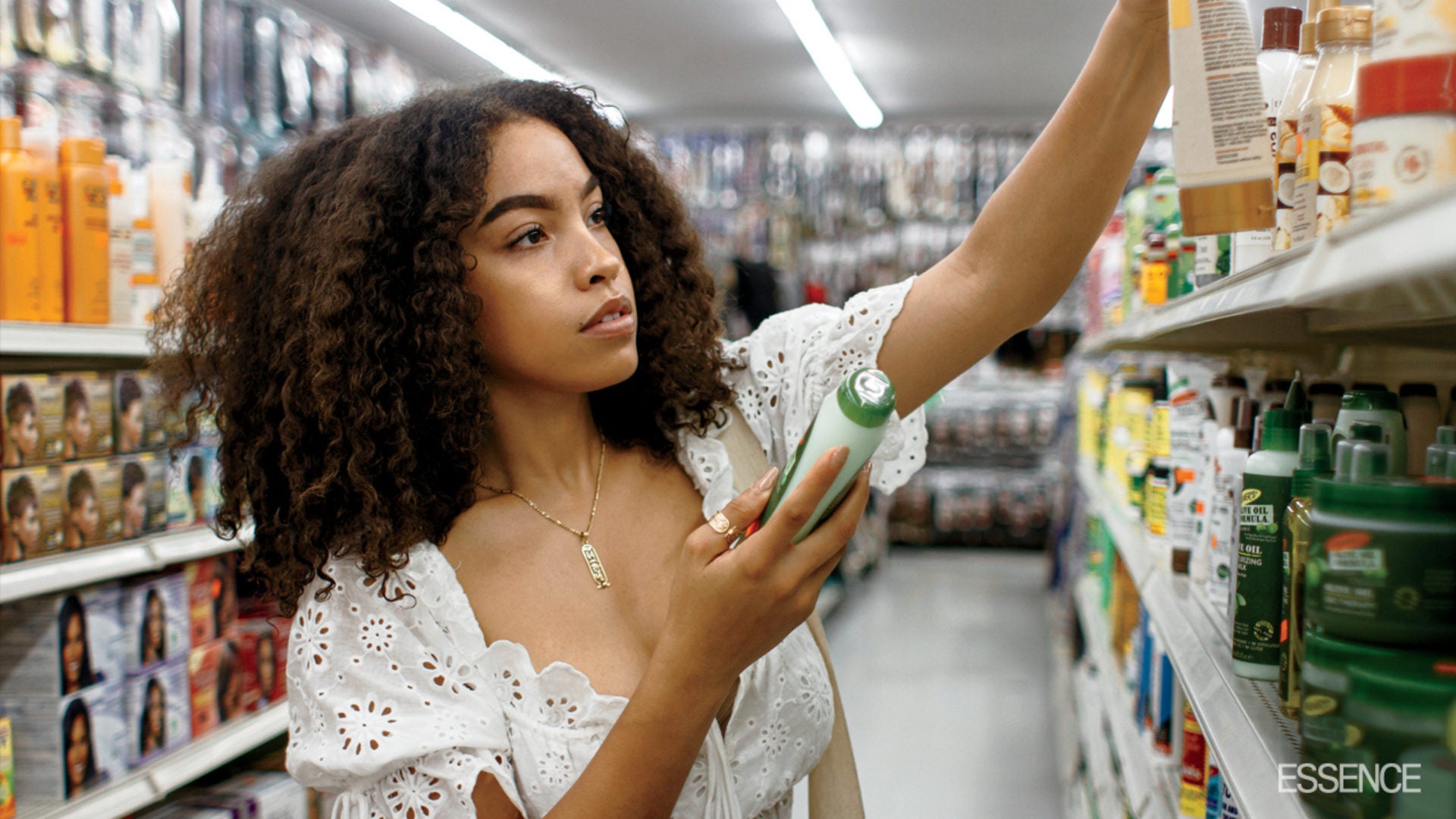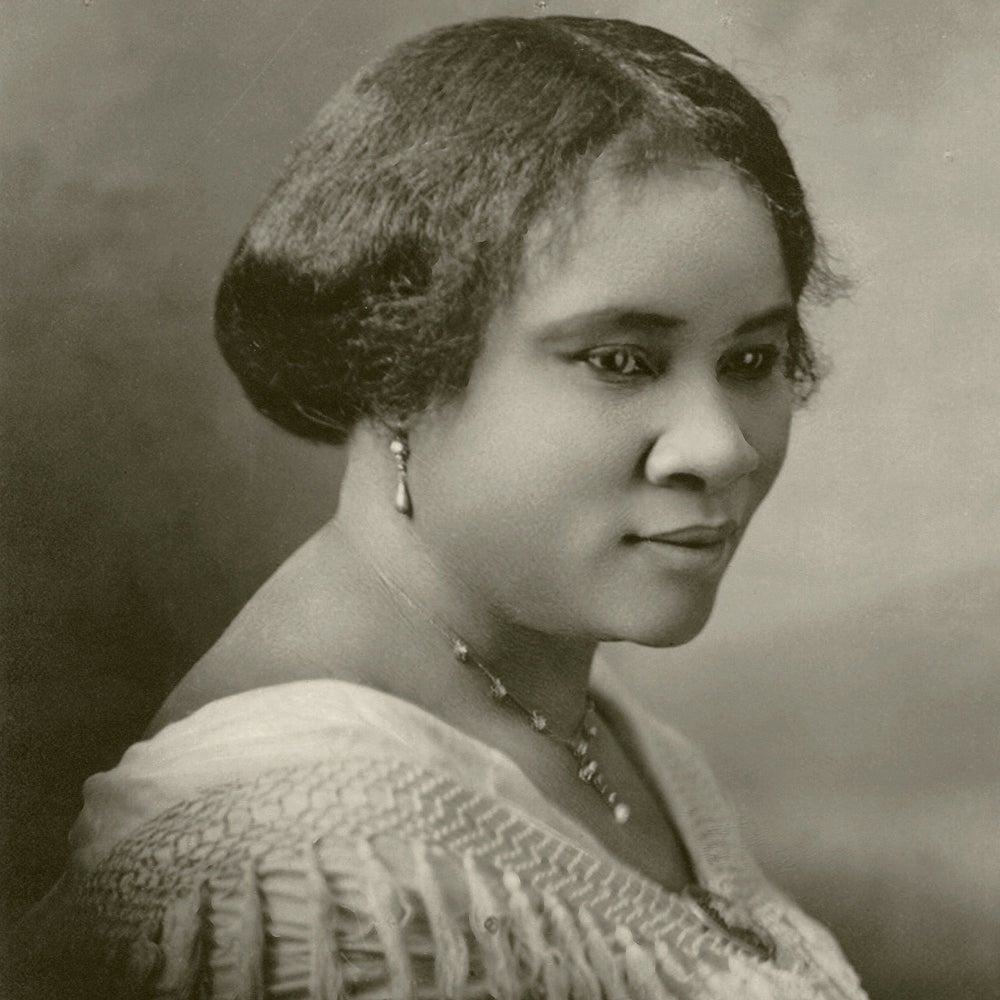
News flash: Black women know beauty. An overwhelming 82 percent of us say it’s important to be well-groomed, and 52 percent of us adhere to a set skin care regimen. Yes, there’s a reason that Black don’t crack. We’re also willing to spend money to achieve our goals. Yet despite our being ideal customers, products suited for us have been noticeably absent from retail shelves. But now Black women have unleashed two potent weapons—our collective dollars and entrepreneurial spirits—to create a market that caters to our unique cultural needs.
BLACK BUYING POWER
African-Americans spend $1.2 trillion each year, and that number is projected to rise to $1.5 trillion by 2021. In 2018 the Black hair care industry raked in an estimated $2.51 billion, as Black consumers have progressively made the switch from general products to those that specifically cater to them. In 2017 African-Americans captured 86 percent of the ethnic beauty market, accounting for $54 million of the $63 million spent, Nielsen reported. In 2017 we also spent $127 million on grooming aids and $465 million on skin care.
And we’re trendsetters: Black spending on health and beauty items has led to an increase in offerings that appeal not just to Black women but also to the general population. In years past, many of us struggled to find options that work for us. Even Black models were left out in the cold, with many of them having to mix their own makeup. In a viral 2015 Instagram post, Sudanese supermodel Nykhor Paul lamented, “Why do I have to bring my own makeup to a professional show when all the White girls don’t have to do anything but show up.” Kimberly Smith, 39, of Washington, D.C., knows that feeling oh so well. A couple of years ago she was doing her normal makeup run at Sephora when a salesperson told her that the product she was looking for was sold out and the store would no longer carry it.
She looked around for an alternative and “none of the brands had a foundation tone that matched my complexion,” she says. “I remember walking out, thinking, How cool would it be if there was a store that women of color could go to where we could go from brand to brand to brand and if one didn’t work out, there was another option.” In January 2017 Smith launched Marjani Beauty, an online makeup store for women of color. Then, in 2018, her friend Amaya Smith (no relation), 40, established Product Junkie, an online biz that helps us find natural hair products.
The two decided to join forces, and in that same year they launched The Brown Beauty Co-op, a retail space in Washington, D.C., that offers beauty and hair items for women of color. More than a product-supply store, The Brown Beauty Co-op gives Black women an experience, the founders say. “Our approach is, ‘Let’s create our own thing,’ ” says Amaya Smith. “This large market oversight is our gain. If they want to take this money for granted, we are happy to step in and create a solution for a huge problem that we know we’ve been facing.”
Our approach is, ‘Let’s create our own thing.’ This large market oversight is our gain.”
—AMAYA SMITH
AN ENTREPRENEURIAL WAVE
The Black beauty entrepreneur is nothing new. In the early 1900’s, Madame C.J. Walker became a selfmade millionaire, thanks to her hair care products. Her teacher, Annie M. Turnbo Pope Malone, another Black beauty millionaire, is credited with being the founder of the Black hair industry, according to the Black Owned Beauty Supply Association. A 2018 study found that AfricanAmerican women entrepreneurs accounted for 20 percent of all women-owned businesses and had the highest rate of growth in new companies between 2017 and 2018.
One of those entrepreneurs is 48-year-old Jamellah Ellis, who in April 2017 opened Curl Theory, an upscale salon for natural hair in Bowie, Maryland. When Ellis nixed her relaxer to embrace her coils in 2011, she found that she “had to buy things that really weren’t made for us and try to make it work.” A corporate lawyer by trade, Ellis was comfortable with research, so she applied those skills and soaked up as much knowledge as she could about working with her textured hair.
Shortly after she opened her salon, Ellis expanded to selling products, with her Curl Theory line debuting on Target shelves earlier this year. Rihanna’s Fenty Beauty also changed the game when it launched in 2017 with 40 foundation shades, many of them complementing darker skin tones. While 40 shades were considered generous at the time, other brands, including Dior and Revlon, have since announced their own 40-shade foundation lines, all in the wake of Fenty Beauty’s commercial success: The company made more than $72 million in earned media value (social media exposure gained from word of mouth and press buzz) the first month after launch.

Stats:
$473 Million: The amount Black shoppers spend on their hair care yearly
$465 Million: The amount Black shoppers spent on skin care in 2017
Other Black women entrepreneurs have staked out their place as major players in the industry. Melissa Butler, founder of The Lip Bar, had her idea of an inclusive makeup line shot down on Shark Tank, but she went on to find a following and commercial success. Forbes estimated the brand’s value at nearly half a million dollars. Meanwhile, breast cancer survivor Cashmere Nicole founded indie cosmetics brand Beauty Bakerie and scored a $3 million investment from Unilever, and makeup artist Pat McGrath started Pat McGrath Labs, then secured $60 million in funding from venture capital firm Eurazeo Brands in 2018.
For Lake Louise, 55, the biggest focus was on clean, sustainable, healthy living, so she wanted makeup that wouldn’t clog her pores. But among natural organic products, “there were no brown shades,” she says. To meet the need, Louise founded Plain Jane Beauty in 2011. “We refer to ourselves as inclusive green beauty,” she says. “We’re working on our eighteenth shade, which will be a very dark, deep color close to the skin tone of Nykhor.”
The days when Black women don’t have any products to choose from to accentuate our curls, our features and our skin tones are now mostly behind us, as we’ve continued to use our business savvy to forge a billion-dollar niche of our own. “The change has been tremendous in a positive way,” says Ellis. “But we still have a long way to go.”